SJC’s Heat Watch and Air Quality Campaign
NEWS UPDATE - Biden Administration Mobilizes to Protect Workers and Communities from Extreme Heat
Cities are getting hotter, and Jersey City is no exception.
SJC continues our We Can’t Manage What We Don’t Measure ! advocacy efforts with a campaign to measure heat and air quality conditions throughout Jersey City.
Check out our Heat Watch and Air Quality Campaign fact sheet for some quick information.
What Is Going On?
Too many dark, heat absorbing surfaces, along with a shortage of Trees create “Urban Heat Islands” (UHIs). While dark, impervious surfaces like asphalt roads and dark roofs absorb heat, a lack of Trees prevents the cooling of street level conditions. This effect is very prevalent in Jersey City — in fact, our Greenville and Lafayette neighborhoods can be 16 to 21°F hotter than a green space like Liberty State Park due to the UHI effect.
Heat has been the number one weather-related cause of death in the United States over the past 30 years, causing more deaths than tornadoes, hurricanes, or floods. Heat waves are also becoming more frequent and intense due to climate change impacts, which do not cause, but definitely exacerbate UHI conditions.
Extreme heat also worsens air quality, impacting people with respiratory ailments and other health conditions. Jersey City has the highest adult asthma rates in Hudson County and the County received an F for air quality from the American Lung Association last year.
Extreme heat and poor air quality are also environmental justice issues, which disproportionately impact low-income areas and socially vulnerable populations. While Trees and other Green Infrastructure can reduce temperatures by 10°F or more, and improve air quality by storing particulate pollutants, across the US, predominantly white communities see 33% Tree canopy cover in their neighborhoods , while communities of color barely see 20%.
Check out information about these issues and Jersey City’s most affected areas.
Learn more about Environmental Justice (EJ) in New Jersey, including the new EJ Legislation which is the most progressive in the US to date !
What Are We Doing?
SJC is very involved in community feedback and education around extreme heat and air quality, as part of our focus on Tree Canopy Restoration for Jersey City. We’re working with residents, community groups, and Jersey City’s Department of Health and Human Services to address these issues.
A working group from SJC also contributed to Jersey City’s Climate and Energy Action Plan (JC CEAP). We’re pleased to see strategic priority actions highlighted for both short and longer terms in the plan to combat extreme heat. These include the cool roofing requirement for all new buildings over 25,000 square feet by 2022 and increasing the number of total Street Trees to 20% by 2030, which is going to be a big challenge given canopy cover right now stands at a measly 10.9%.
We also received a Unilever Change Makers & Do-Gooders Community Grant in early 2021. For SJC’s Heat Watch and Air Quality Campaign, we partnered with CAPA Strategies to analyze heat and humidity conditions, and with Rutgers CEED / EOHSI to measure air quality conditions in Jersey City. The aim was to track the UHI effect and analyze its relationship to air quality problems.
SJC also joined a national NOAA NIHHIS cohort for knowledge sharing and opportunities to learn about other cities’ best practices to address extreme heat.
For this campaign, we went beyond Jersey City. We partnered with Groundwork Elizabeth based out of Elizabeth, NJ and South Ward Environmental Alliance in Newark, NJ, who had the same concerns about extreme heat as we did.
On July 24 2021, 45 volunteer drivers and navigators collected thousands of temperature and air quality data points along predetermined routes across Jersey City using sensors affixed to their vehicles. Our sister cities Elizabeth and Newark had their Heat Watch campaigns on the same day.
Here are some snapshots from our campaign day and awareness drive at City Hall Annex.
If you did not already know, we are huge fans of Trees here at SJC. It turns out Trees can help reduce extreme heat impacts, offering quality of life dividends that we all should strive for. Learn more about SJC’s Tree Mapping Census and how to join this Environmental Stewardship initiative for your neighborhood.
What’s Next?
CAPA Strategies is working on temperature data while Rutgers CEED / EOHSI is analyzing air quality data. This Fall, SJC will present visual results to the public, empowering communities and municipal decision makers to take action and curb extreme heat impacts. Our goal is to educate everyone and gain feedback from neighborhood stakeholders about the kinds of solutions they would like to see implemented.
We want Jersey City to be the ‘coolest’ place around with much better air quality for people who live and work here.
SJC’s efforts to collect temperature data around Jersey City was mapped to compare increased temperature with neighborhood location.
Check out an enlarged version of the SJC Urban Heat Island Effect Map
How do we come up with mitigation strategies and then educate policymakers to make better decisions? It is a current work in progress, and we need all the help we can get.
If you are interested in working on this with us, follow us on social media or sign up to volunteer with SJC.
This is a big problem, but one that we can tackle together as a community.
What Can You Do?
While combating extreme heat requires extensive public-private-non-profit partnerships, there are definitely steps that residents can take to aid all these efforts. Here's what we recommend:
Learn more — Contact your Ward Council Member about extreme heat, air quality and Street Tree planting and maintenance in your area and engage in public presentations for the results of SJC's Heat Watch and Air Quality Campaign.
Thank your Street Trees — Clear debris from planting sites, water your Street Trees regularly, add compost and mulch to planting sites to help retain moisture, protect the bark from damage, and report any Tree-related issues at www.seeclickfix.com/jersey-city. To participate in SJC’s ‘We Can’t Manage What We Don’t Measure !” Tree Mapping & Community Stewardship Campaign please add your name to the Registry here.
Consider Community Solar — Community Solar projects help increase the amount of solar-generated energy and reduce the amount of fossil-fuel generated energy. Subscribers help lower emissions, and ultimately temperatures generated from building energy use, all while getting a discount on their energy bill — no homeownership necessary! PowerMarket and Solar Landscape have community solar projects serving Jersey City and both are offering a $100 cash gift card to new subscribers.
To get the PowerMarket cash gift card, use this link: https://hartz.powermarket.io/sjc.html
To get the Solar Landscape cash gift card, use the code SLSJC on their signup page: https://gosolarlandscape.com/
Look into Cool Roofs — Homeowners and Building Associations can invest in reflective roofs or rooftop gardens if possible to combat heat and use energy-efficient appliances to reduce building-related emissions. The NJDEP has good recommendations on the types of Cool Roofs available along with other helpful suggestions for lowering costs and increasing more energy efficient energy use. Also, new government tax incentives and utility company rebates are in the pipeline, so keep an eye out for those and eligibility criteria.





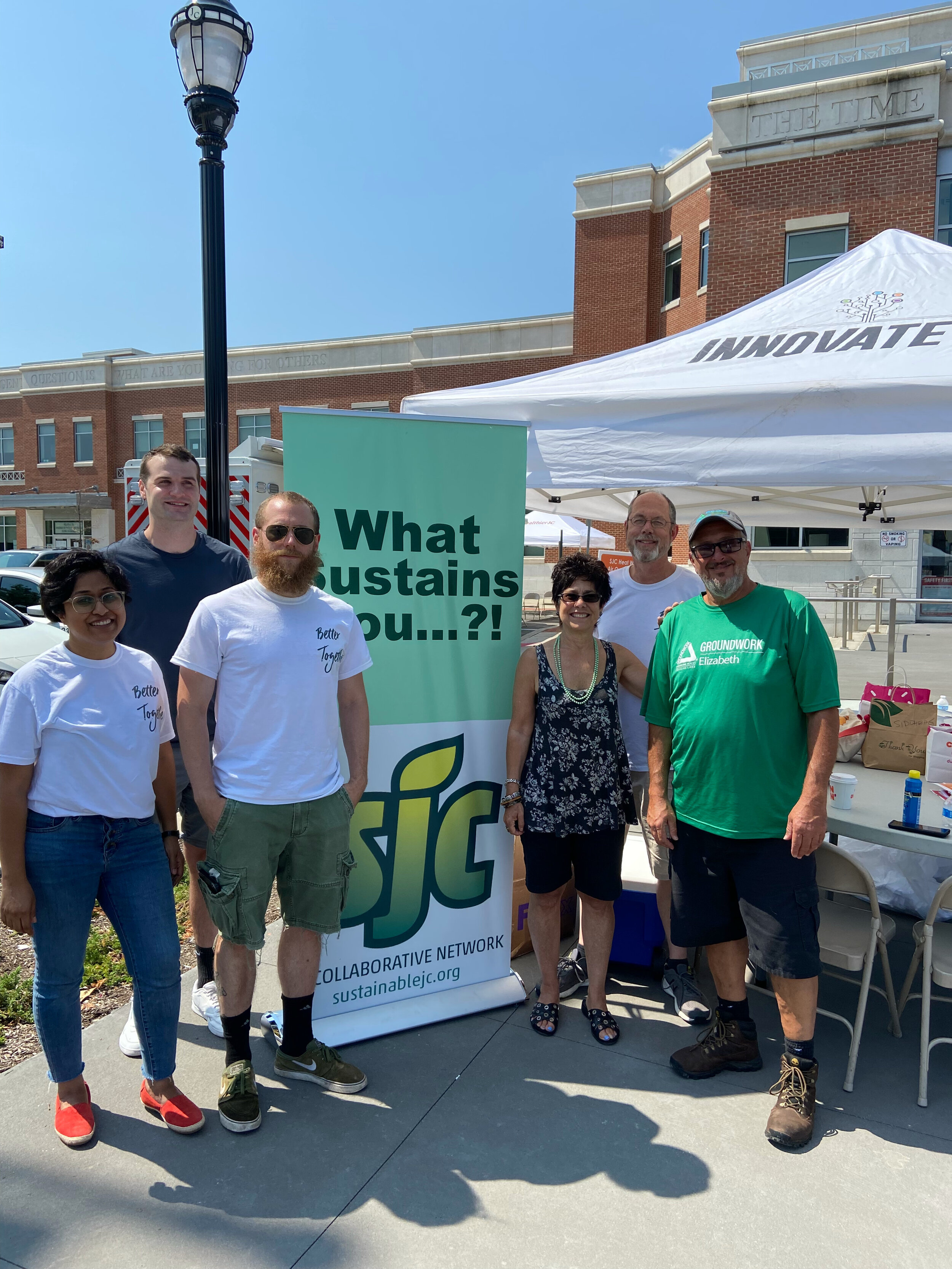
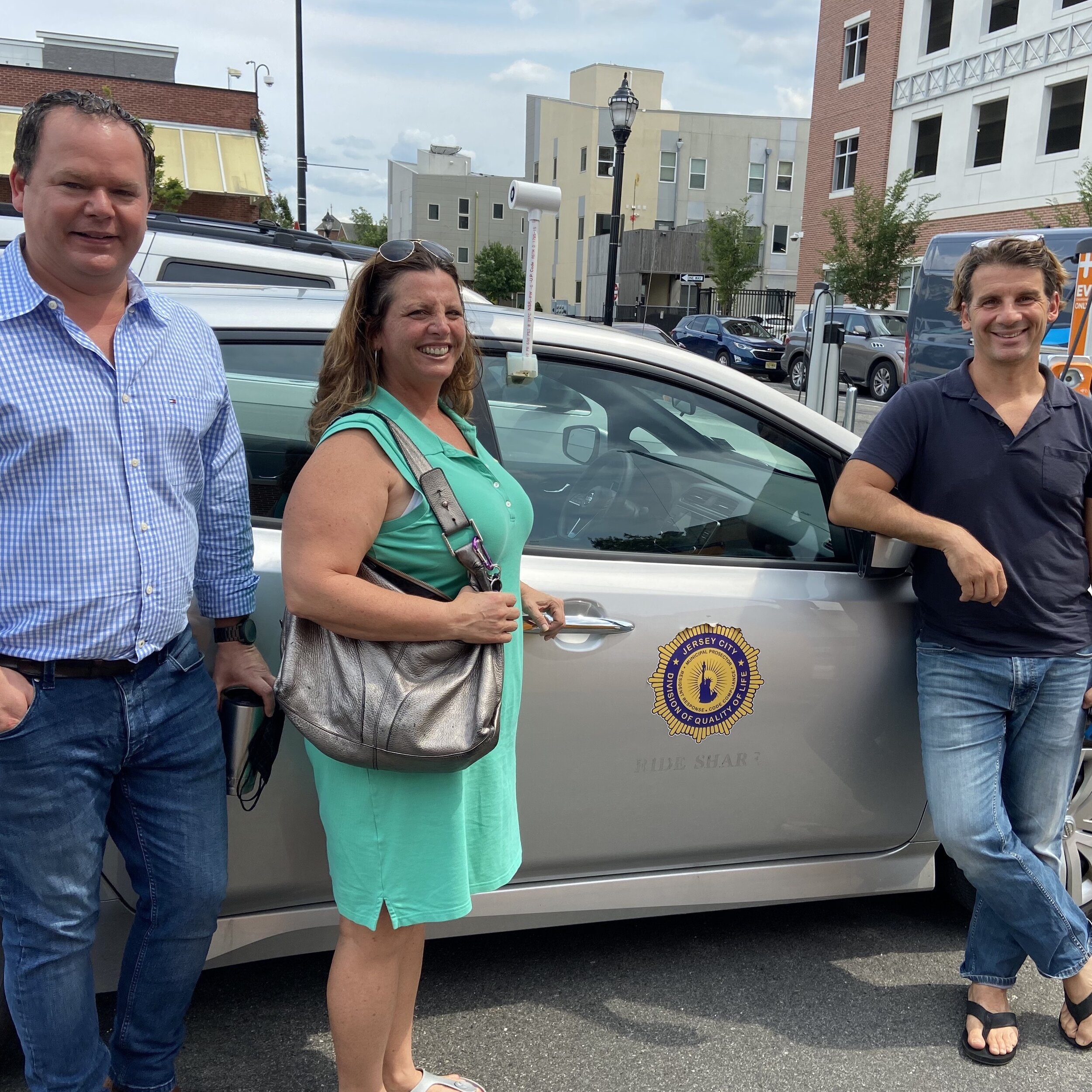
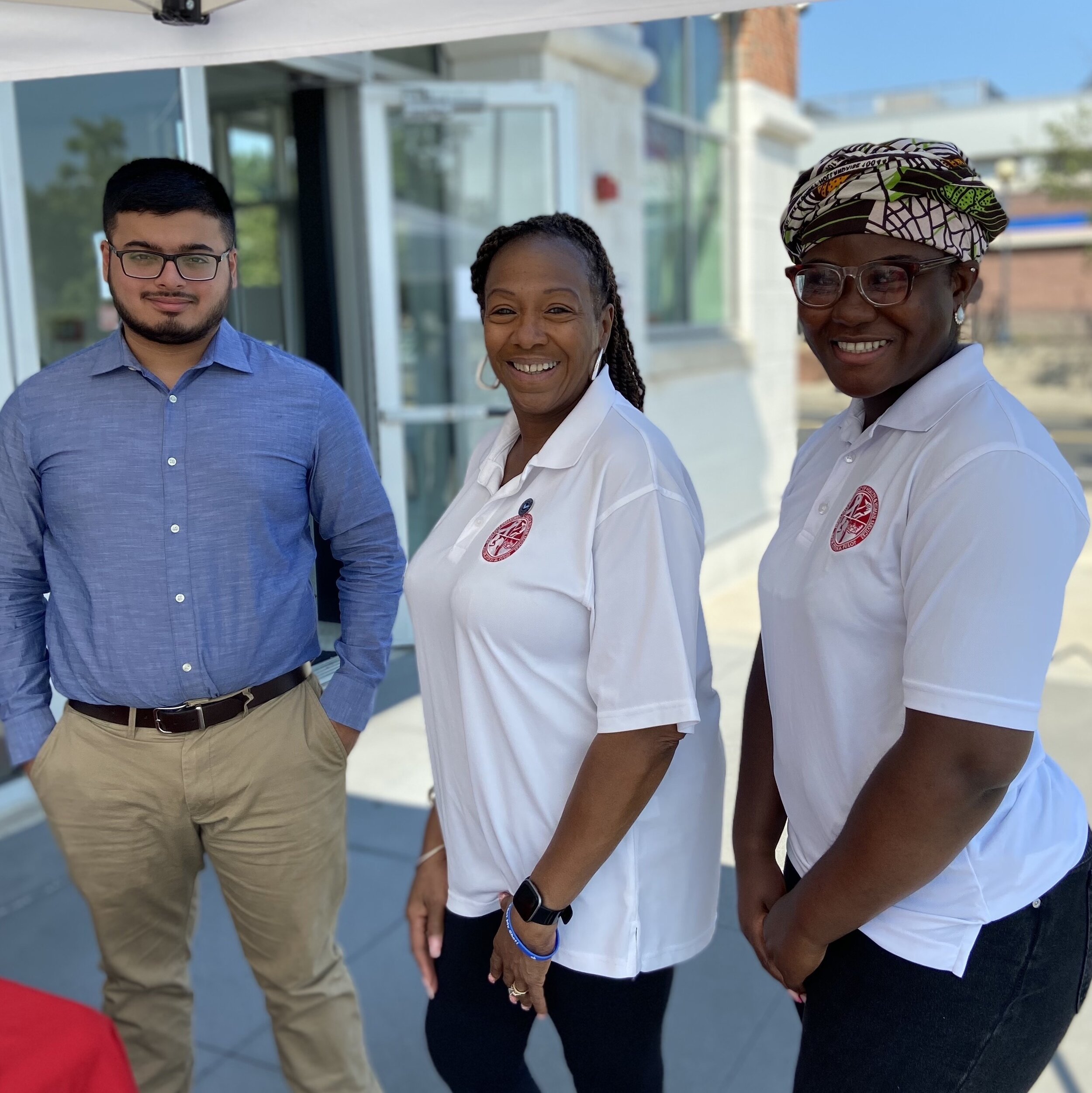
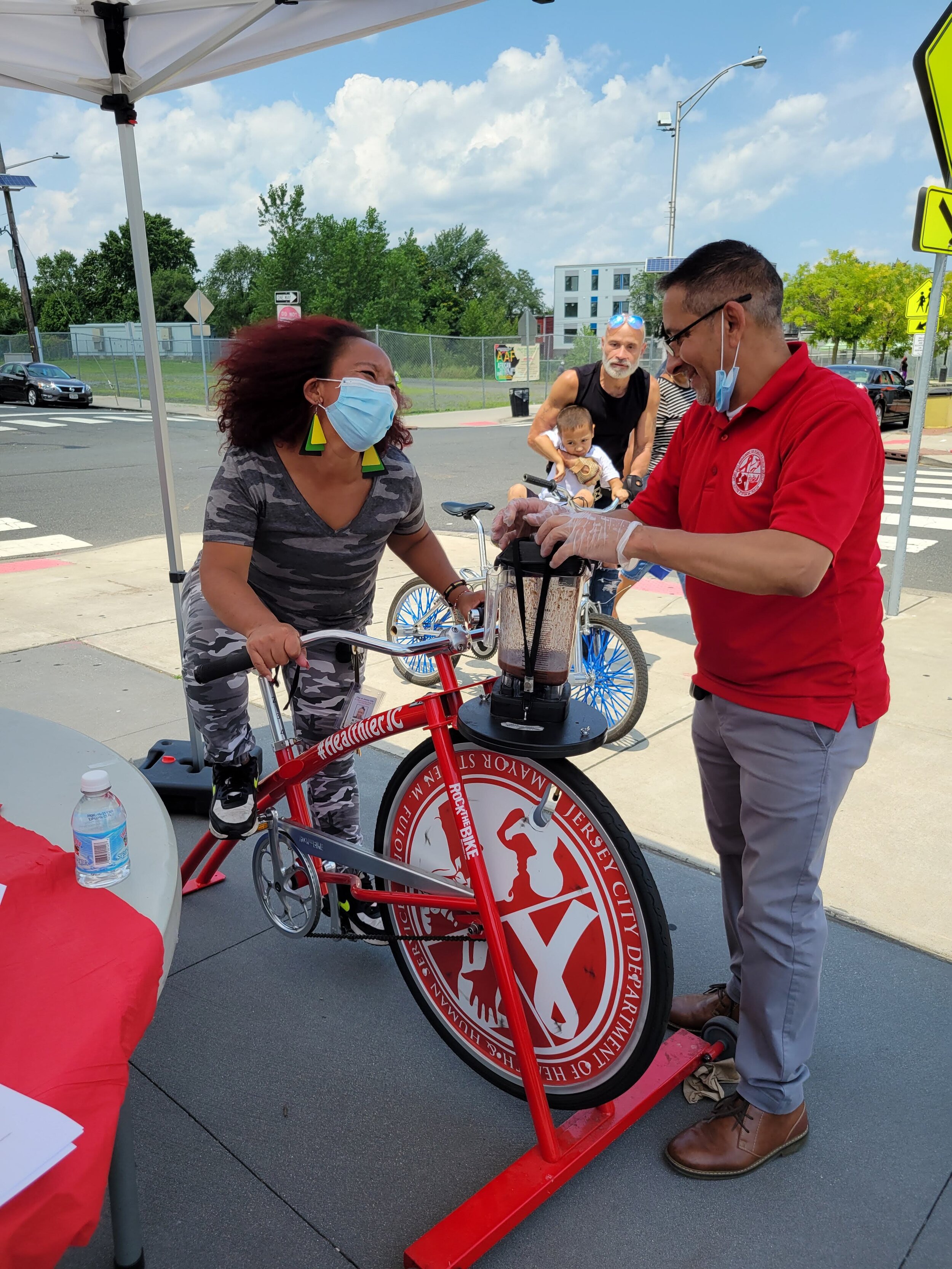
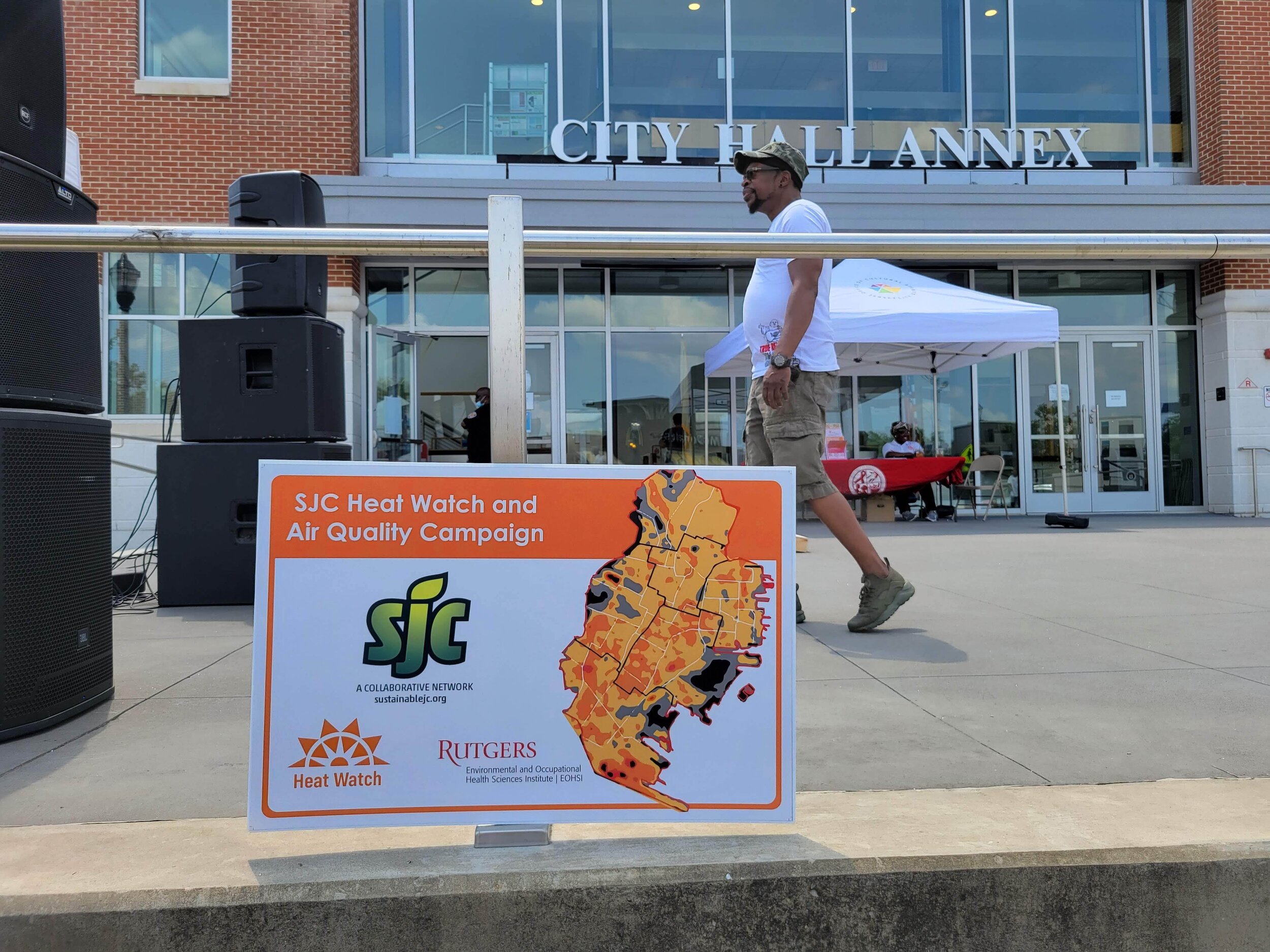

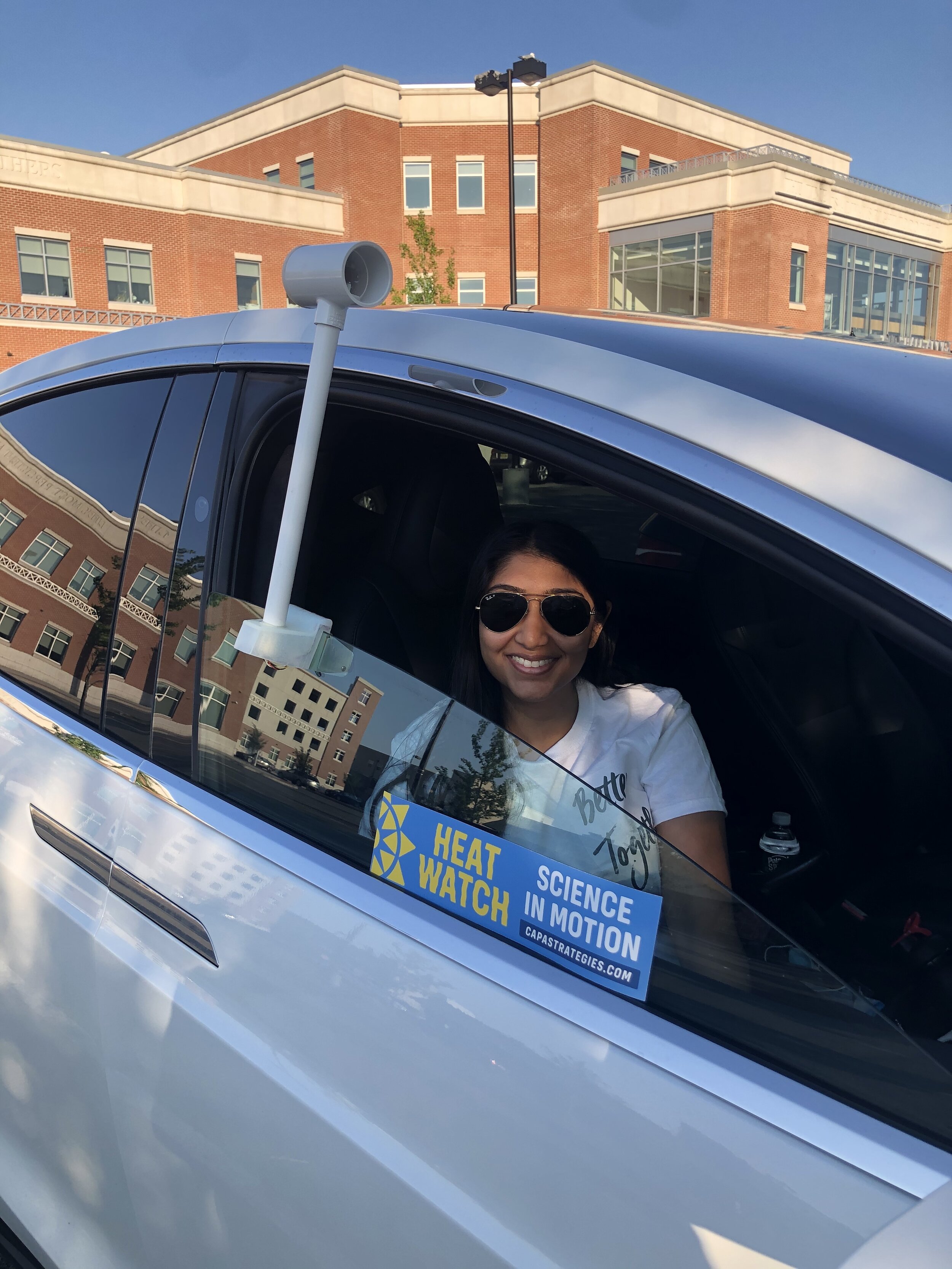
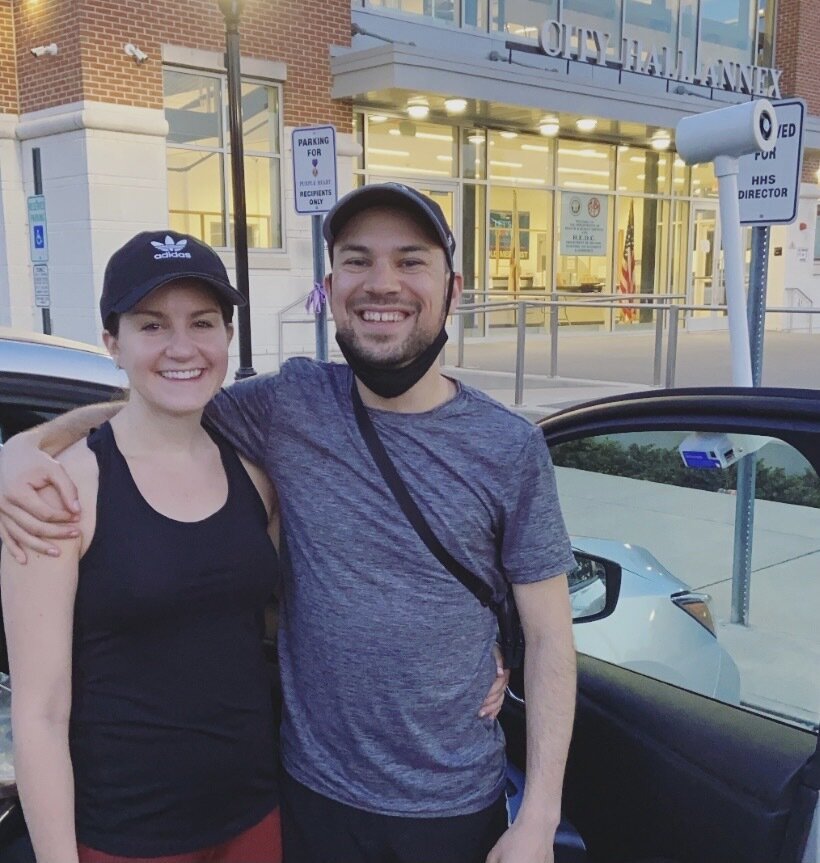



Building a sustainable wardrobe doesn’t mean sacrificing style—it just means making smarter choices. Whether you’re shopping second-hand, supporting ethical brands, or getting creative with upcycling, every small step helps reduce waste and protect the environment.